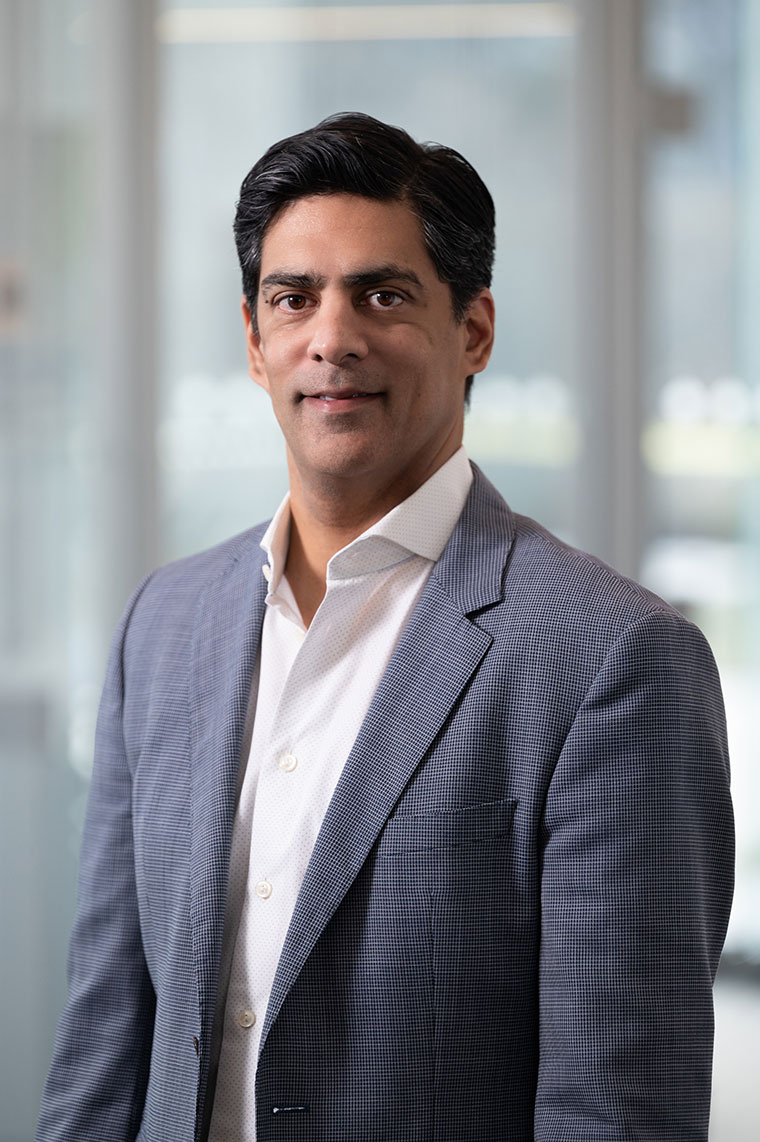Profile
Dr. Kawan Rakhra
Ottawa, Ont.

If there’s one piece of advice Dr. Kawan Rakhra hopes his trainees will take from him, it’s to never try to predict the future of your career because health care never stops evolving.
“Sciences have no limit in scope and depth,” says Dr. Rakhra. “There are so many interests that you will have that you don’t think of in the present moment, so it’s important not to be rigid or prescriptive with what you think you want.”
Dr. Rakhra’s wide-ranging interests in the study of human anatomy and biomechanics led him to pursue his residency in radiology from the University of Alberta and a fellowship in musculoskeletal imaging at the University of Toronto.
Today, Dr. Rakhra heads the musculoskeletal imaging division at The Ottawa Hospital, is an Ottawa Hospital Research Institute investigator, and teaches radiology at the University of Ottawa.
“Medicine provides opportunities beyond patient care, such as teaching and research. There is a natural evolution of being a physician,” he says. “When you first start clinical care, you eventually grow into administrative roles and evolve into leadership roles. You start challenging concepts, getting into research to answer questions that can advance the profession and improve healthcare experiences.”
After nearly two decades of front-line experience, Dr. Rakhra is keen on continuing to expand his research interests. He recently became an advisor to a medical start-up that uses virtual reality (VR) — a realm he believes has much to offer radiology.
“VR has a lot of use in gaming, but I’m looking at how to leverage the technology to help radiologists with advanced 3D imaging and modelling.” It’s more dynamic and interactive than traditional radiologic imaging, he explains, and will transform how we view and understand complex anatomy, especially in the context of collaboration with surgeons.
In an academic setting, Dr. Rakhra was drawn to the endless opportunities that presented themselves, though it took some years for him to recognize the importance of balance. “I experienced at least two periods of burnout,” he explains. “I was overwhelmed with too many responsibilities — but you want to accept opportunities, not turn them down.”
Burnout is a threat to physician wellness and the healthcare system as a whole. Dr. Rakhra believes that dealing with burnout is seen by some physicians as a reactive measure when it begins to impact patient care or personal lives.
“Now it’s being more proactively discussed. It’s a greater priority among MDs and training programs. [Eventually] I understood … there is only so much you can do; there are only a certain number of hours in a day.” Cutting back on administrative activities, for example, enabled Dr. Rakhra to be selective with academic and research opportunities.
Dr. Rakhra has been with MD Financial Management (MD) since residency, as he realized early in his career the importance of financial literacy and planning. MD’s tailored, holistic approach to financial health creates a safe space for retirement planning.
“My wife is also a doctor. Having two physicians in the family can be chaotic,” he jokes, “but our finances are never chaotic with MD. There’s a sense of trust there, that [I’m more] of a person, not a client.”
He never fails to impart the financial wisdom he’s gleaned to his junior colleagues, encouraging students to practise wise financial management.
“As you get older in your career you think about your future, but we should do that earlier,” says Dr. Rakhra. “There are key times as residents transition to practice that we can talk to them about financial well-being.”
Back to Physician CouncilMD Financial Management provides financial products and services, the MD Family of Funds and investment counselling services through the MD Group of Companies and Scotia Wealth Insurance Services Inc. For a detailed list of the MD Group of Companies visit md.ca and visit scotiawealthmanagement.com for more information on Scotia Wealth Insurance Services Inc.